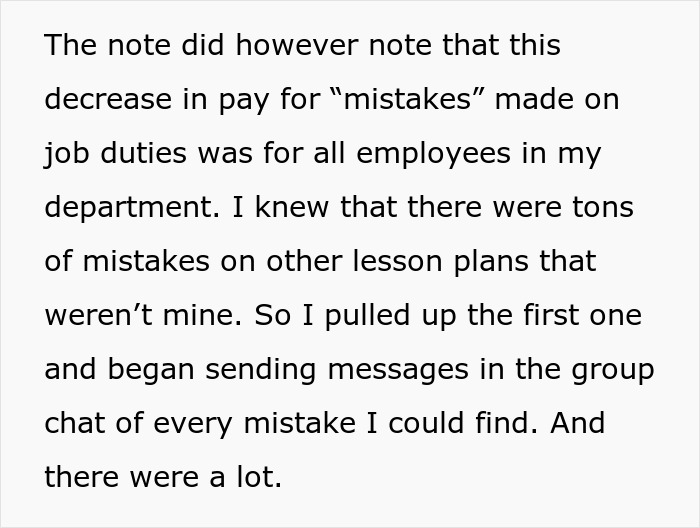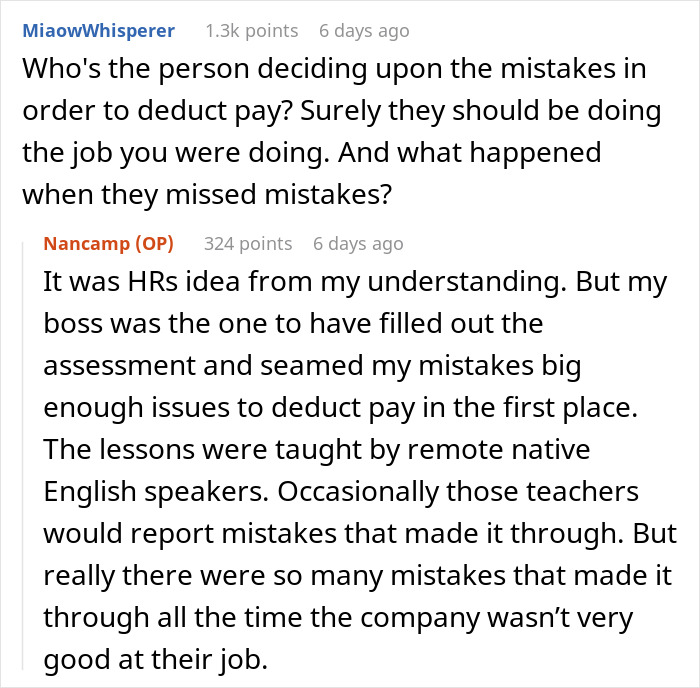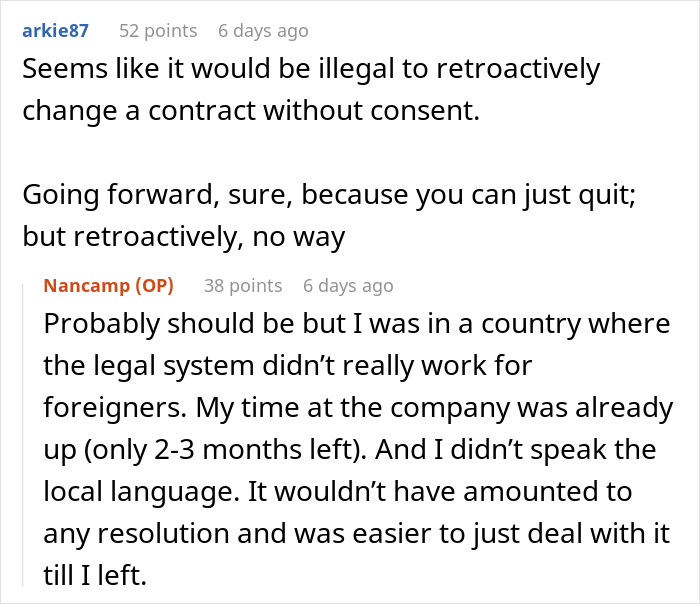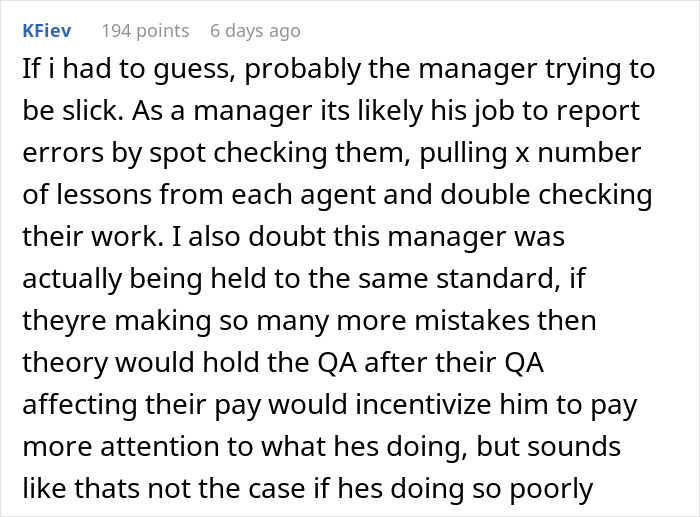For non-native speakers, English grammar is incredibly difficult to master. Auxiliary verbs, subject-verb agreement, verb patterns, tenses, phrasal verbs, vocabulary, prepositions, it’s enough to make your head spin! And while learning English is extremely challenging, teaching it is no small task either. Explaining why certain rules are the way they are (or why they’re constantly being broken!) doesn’t come naturally to everyone. Apparently, not even every English teacher can agree on every single grammar rule.
Below, you’ll find a story that was recently shared on the Malicious Compliance subreddit where one English teacher decided to call her boss out after he docked everyone’s pay due to “grammar errors”, as well as some of the replies that invested readers left. Let us know in the comments what you think of this situation, and then if you’re interested in checking out another Bored Panda article highlighting just how arbitrary linguistics can be, look no further than right here!
After her boss started docking pay for “grammar errors”, this English teacher decided she would school him on his own mistakes

Image credits: Max Fischer (not the actual photo)





Image credits: Sora Shimazaki (not the actual photo)



Image credits: Nancamp
The teacher later shared more information on the situation, noting that it would have been difficult to fight the reduced paychecks



Being an English teacher in a foreign country is not a simple task. I have actually done it myself, and although I was working one-on-one with two children, rather than having a class full of students, it made me realize just how ridiculous this language can be. The grammar errors they made often made sense logically, and the whole experience gave me so much more empathy for people who learn English as a foreign language. But in this situation, where there is one boss and various employees teaching English, it seems like it would be important for everyone to be on the same page. They should have been given one set of rules and a solid decision about what dialect of English would be taught. Otherwise, lessons could become very confusing for students, and teachers for that matter, and it’s unfair for the employer to start cutting paychecks.
It was likely illegal for the boss to start docking pay in the first place, but I can see how it would be challenging to navigate that situation in a foreign country and without legal counsel. I empathize with the woman who shared this story because I’ve made a fool out of myself on more than one occasion in the UK when I ignorantly yet confidently used my good ole American English. (Which I’ve been told many times is not even a thing because, “English people invented the language!”)
There are many differences between the two dialects, though, and these could be challenging for anyone to remember, especially Chinese students who are just trying to get a handle on the language at all. First of all, there are more than a handful of words that have different names in the United States than they do across the pond, including pants/trousers, apartment/flat, trunk/boot, elevator/lift, vacation/holiday, chips/crisps, sweater/jumper, store/shop, sneakers/trainers, and soccer/football. Not to mention how many words are spelled differently as well, including meter vs metre, license vs licence, encyclopedia vs encyclopaedia, favorite vs favourite, and organize vs organise.
Another thing I have always noticed when in the UK is how questions are phrased. For example, if I was wondering if someone knows what time it is, I would likely ask, “What time is it?” or “Do you know what time it is?” In England, I have often heard questions that I would start with “do you” phrased starting with “have you”, such as, “Have you got the time?” “Have you got a pencil I could borrow?” British people also tend to be bigger fans of the word “shall” than Americans. Rather than, “Can I open the window?” A British person might be more likely to say, “Shall I open the window?” “Shall we meet at 4pm?” “Shall we go for a walk?”
I would hope that this boss learned his lesson, as the woman noted that he thankfully never docked her pay again. And while I’m certainly an advocate of learning proper grammar, I don’t think it’s fair to judge your employees or start messing with their paychecks when there have not been solid rules determining what type of grammar should be taught/spoken in class. We would love to hear your thoughts on this situation in the comments below, pandas. And let us know what dialect of English you speak. American, Canadian, British, Irish, Australian, or another style? Then if you’d like to check out another Bored Panda article featuring how silly linguistics can be, you can find that right here!
Many readers applauded the woman for her malicious compliance, and some even shared their personal experiences with the various dialects of English















The post Boss Suddenly Has A Zero-Tolerance Policy For Grammar Mistakes, Employee Maliciously Complies And Finds All Of Her Boss’ Errors first appeared on Bored Panda.
from Bored Panda https://ift.tt/kMwaXsq
via IFTTT source site : boredpanda